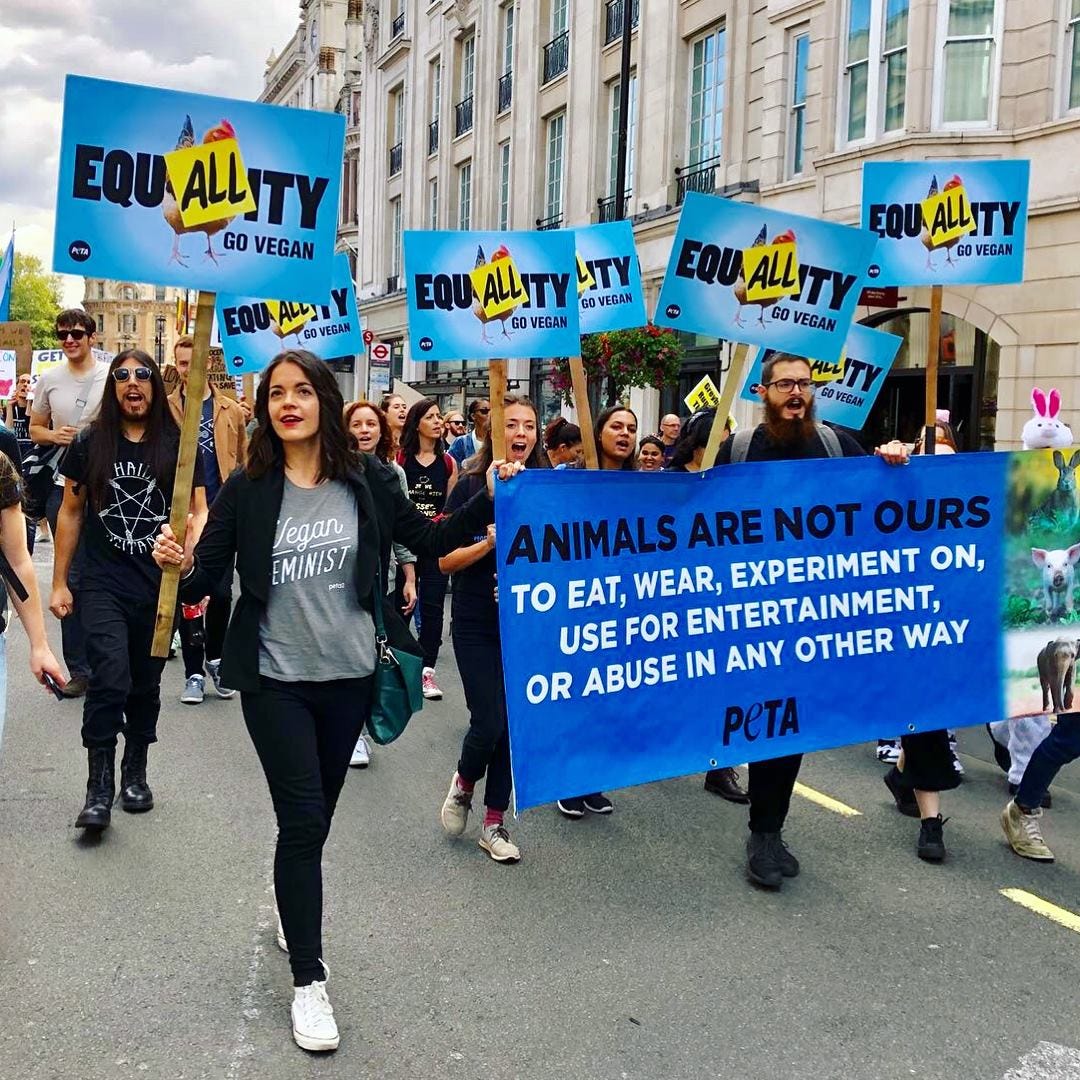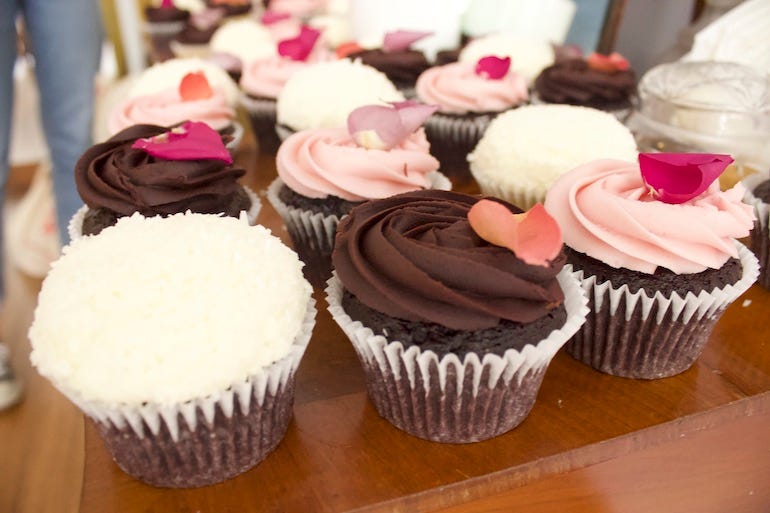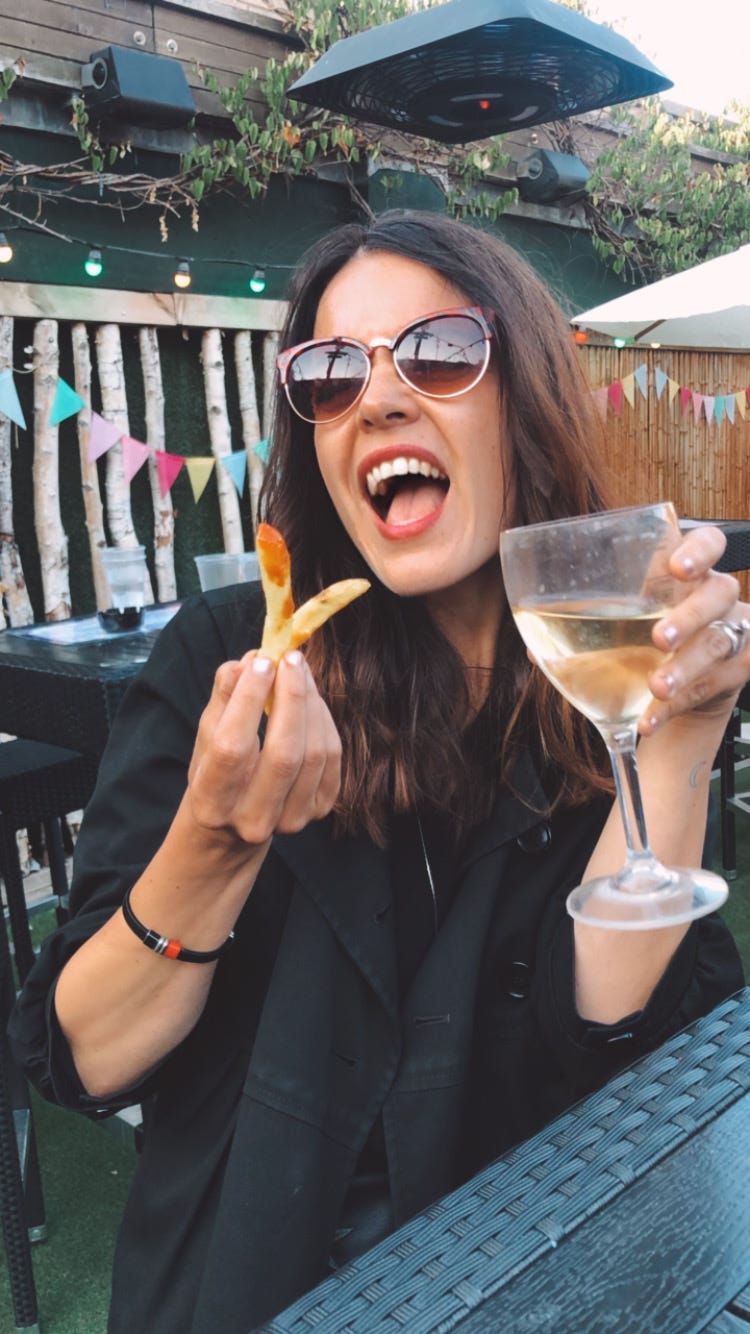Twelve Things I Learned from Twelve Years as a Vegan
Decade-plus old wisdom, right here.
A little note: you might have noticed that the newsletter has a different name. I had a little rebrand! After three months on Substack, I’ve had people not remember the name, not know what it means, not be able to spell it and so on. And to be honest, I wasn’t feeling “at home” with it myself. Plus, I intend to expand the content a little (stay tuned!) and it doesn’t really fit. So now, here we are - Kind of Wild. It just came to me one day and I ran with it. Hope you like it.
This year marks my twelve-year vegan anniversary – and my path to veganism was a long transition. To briefly summarise my vegan awakening: as soon as I understood where meat came from, I knew instinctively that I wanted nothing to do with that. But as many other people, I was under the misguided impression that humans “had to” eat meat. Then I found out about vegetarians, and I stopped eating meat when I was eleven.
For some reason I kept consuming fish until way into my twenties – all while calling myself a vegetarian. And it would take me a whole bunch of years to go all the way – I didn't turn vegan until I was 29, when I read the book Eating Animals by Jonathan Safran Foer. It's an absolutely devastating account of what happens to animals in the farming industry. After I read this heartbreaking book, I went through a phase of seeing suffering everywhere and imagining the pain and anguish of the animals who are used in our everyday lives – food, fashion, animal testing, the entertainment industry, and so on. I realised that if I kept partaking in these trades by supporting them with my money, there was no way I could feel good about myself. I had to be part of the solution. So I began transitioning towards a vegan lifestyle.

Fast forward twelve years, I've now got a job in veganism, I've started a vegan magazine, written a book about vegan fashion, and lectured to crowds of people about living a life free from cruelty to animals. It's safe to say that veganism changed my life. So to mark the occasion, I wanted to share twelve things that I have learned in my twelve years of veganism.
Get ready for some wisdom from a vegan veteran! Or, you know, some ramblings from a tofu-loving weirdo.
Lesson one: Being vegan is simple.
Note that I did not say easy. It won't always be easy, sometimes you'll be stuck eating just chips. Sometimes people will torment you with their silly questions. Sometimes you will have to contact a brand to check if whether mascara that makes your lashes look so long is vegan. So no, it's not easy. But it is simple, meaning that once you've made up your mind, the path is clear. You know where you stand. You just don't see dairy cheese, beef burgers and fish sticks as food anymore. That's simple. And if your favourite shopping website only has leather shoes, you just won't shop there anymore. It's not easy, because it might mean having to work a little bit harder to find shoes, but it's simple. It becomes black and white, yes or no. The doubting is gone, the bargaining is gone. Once you've had that awakening, it's simple.
Lesson two: You don't have to give anything up.
It's not about subtracting and removing things, it's about replacing. I remember when the UK's first vegan pizzeria, Purezza, opened here in Brighton, my husband and I went to trial their menu for my magazine. David was a new vegan back then, and he was still getting used to it. He had a spicy pepperoni pizza, which was his favourite when he was omnivore. I still remember his face when he tried it. His reaction was: “So I don't have to give anything up.” He was so positively surprised at being able to eat vegan versions of cheese, spicy salami and all the other things he'd always enjoyed.
It was the same for me. When I started transitioning, for some reason I thought that vegan cakes did not exist, aside from some specialist bakeries in the US. I thought either you lived near one of those, or you wanted a vegan cake, you baked it yourself. Then I moved to London, and on our third day in the city we came across the Ruby’s of London vegan cupcake stall. Such a wonderful surprise and realisation that everything you love is available in a vegan version.
And this has been consistent in the last few years. There are endless options when it comes to food, fashion, beauty, and more. It really isn't about sacrifice anymore.
Lesson three: You WILL slip up.
This is something that has happened to all of us. Every vegan has, somewhere along the line, accidentally eaten something that wasn't vegan, or bought a product that had animal ingredients, or in some other way slipped up. For me, it was a pad thai I ate in Spain. When I realised there was egg in it, when I was already halfway through. These things happen. Don't beat yourself up and don't waste a lot of time thinking about it. You are definitely still vegan! Animal use is so deeply entrenched in our society that it can be hard to entirely detach yourself from it. It's not your fault, it's completely normal and you're doing the best you can.
And when those slip-ups happen, remember this next lesson.
Lesson four: Your “why” is your guiding light.
Your motivation for being vegan has to be clear in your mind. In one of my many former jobs as a copywriter, I was the only vegan in the office, and once a colleague said: “you should have one day a month when you eat what you want.” I tried to explain to her that I eat what I want every day – obviously within reason of what makes me feel good physically in my body – and she didn't seem to understand that I had no desire to eat dairy cheese, pork hot dogs, whipped cream or any of the things that she saw as treats. Once my “why” clicked into place, I no longer wanted these things.
A bit of a controversial opinion: I believe you can choose a plant-based diet for many reasons. But you’re vegan for the animals.
That’s the only “why” that will effortlessly keep you anchored to this path. New studies might come out and change your mind on environmental impact or health benefits or whatnot, but once you understand that animals are not things but sentient individuals who have a desire (and right) to live their lives free from oppression, the veil is lifted.
Lesson five: The most annoying thing about being vegan is not milk powder. It's other people.
I can pretty much guarantee that your biggest struggle as a vegan will not be ingredients or restaurants or even fashion. It will be dealing with people. Humans around you and their clever, clever questions. You know the kind: Our ancestors ate meat and so do lions – why don't you? We have canines, so surely we're meant to eat meat. What about those poor plants and their feelings? And of course there's Schrodinger's cows: the ones who will go extinct if we don't breed them, but also somehow overpopulate and take over the Earth if we don't eat them.
What most annoys me about these charming queries is that they seem to arise when you're trying to enjoy lunch at your desk, have a cocktail in a bar, or tuck into a plateful at a family dinner. I don't know about you, but sometimes I just want to eat in peace without having a debate. So through the years, my response to these questions has been to shut them down. Laugh and change the subject. But when I got into activism, I learned to see those as opportunities to educate people. And I'm not talking about uncle Jerry who will spend Sunday lunch grilling you about protein. I'm talking about everyone around you who's listening to the conversation and happens to hear all of the facts and info you are using as your arguments. So just sometimes – not every time – it’s worth taking on the battle. Respond calmly and factually. If you need inspiration on how to do this, watch any debate that involves Earthling Ed.
Lesson six: Sometimes, those annoying people will be fellow vegans.
My experience with other vegans has been 99% wonderful. Most of my best friends are vegan and I've had so many epic times hanging out with vegans. But it has to be said that in-fighting between vegans is seriously damaging to the movement. I've seen so many instances of people gatekeeping and policing who's “a real vegan” and who isn't. There is so much arguing about what words can be used in advocacy, what advocacy style is better, who is really fighting for animal liberation and so on. I have been accused of not being a real vegan because I talk about fashion, and “vegan capitalism” apparently isn’t the road to liberation. Plus, there is my number-one pet peeve about this movement: personal purity. Debating things like whether it's fine to eat something that has been cooked on the same grill as the meat (which, for the record, in my opinion is completely fine) only creates divide.
In my view, these fights have the potential to make veganism look really difficult to anyone who isn't vegan. The animals benefit from 10 000 imperfect vegans much more than 10 perfectly pure saintly people who never get anything wrong.
Lesson seven: Veganising your partner is possible.
I can only speak for myself here, and for some people this might not happen. But twelve years ago when I went vegan, David said: “it's great that you're doing this. I will never go vegan. Maybe vegetarian, but never vegan.” David has now been vegan for eight and a half years.
How did it happen? You can read more in our interview linked above, but my main piece of advice would be not to push. During my first months and years as a vegan, I never complained about David eating animal-derived foods, and if he wanted to try something vegan, I was really positive about that. The decision has to come from your partner, not from you. Their “why” has to be really clear in their mind too. If they only do it because you want them to, they are likely to backtrack, which I’ve seen happen to people. I know this is awful to think about but imagine this scenario: if you broke up today, would they still be vegan without you? In the meantime while they are transitioning, show them just how easy it can be – take them to all the amazing restaurants. Cook them all the delicious food. Show them all the gorgeous fashion. Take them to an animal sanctuary and show them all the animals that have been saved from exploitation. Make them see that their life can still be fun, rich, full of experiences. Be as supportive as you can.
Lesson eight: Activism can take many different shapes, and they are all equally valid.
I work for an animal rights organisation and as such I have taken part in and helped plan disruptive actions, but I have also spoken up at fashion companies' shareholder meeting to call for them to stop selling animal skins, I have worked with magazines and fashion events on anti-fur policies. Outside of my job, I've taken part in street protests, outreach events and direct action. All of these are perfectly valid forms of activism. Other forms of activism that I have done include guest-lecturing about vegan fashion and material innovation at universities (this is also something I do for my job), public speaking at festivals, and yes – posting on social media. I think that online activism is so important in this day and age - being online is how we absorb information, and spreading a message has never been more immediate. So online activism is a very, very valid form of activism. Signing a petition or sharing a post is taking action. And yes, sharing delicious food with people or showcasing beautiful vegan fashion or vegan and cruelty-free beauty products on your social media is also worthwhile and essential. Don't let anyone tell you that it's not.
Lesson nine: The non-food aspects of veganism are just as important.
For me personally, food was actually the last thing to get there. While I was a pescatarian and vegetarian, I wore nearly no leather. I always tried to buy cruelty-free cosmetics, and as an adult I never went to zoos or marine parks. Giving up dairy and eggs was one of the final steps in my journey. But for many people, it's the other way around. However, animal abuse is not limited to the food industry. It's present in so many other things: it's in the things we wear, the beauty products we use, the way we decorate our homes, how we travel, what we do in our free time. And it's just as important to consider these.
I've heard from other activists that if you get people to understand that it's wrong to eat animals, then the rest will follow. I both agree and disagree. I think that can be true in some cases, but I have also met people who simply don't know about animal cruelty in other aspects. That was true for myself as well in some aspects - for a long time, I didn’t know about animal-derived ingredients in cosmetics, for example. So it's key to bring up these topics just like we talk about food.
Lesson ten: The world probably won’t go vegan.
This may sound discouraging, but I do not believe we will ever have a vegan world. I believe that if humans stay on this planet, our consumption of animal products will significantly drop, but ultimately I predict that humans will always abuse other animals. Just like we will always abuse each other, to some degree.
Does this mean that we should stop fighting for animal rights? Absolutely not - we should keep campaigning, simply because it’s the right thing to do. Just like activists who campaign against war probably realise that there will be wars as long as there are humans, but they still keep their efforts going. We can still make significant differences to the lives of animals, and greatly decrease the suffering, which is no small thing.
Lesson eleven: You NEED vegan friends.
Please do not go it alone.
Being vegan in a non-vegan world is already so challenging (once again - it’s simple but not always easy!), if you do it without a support network it might become too daunting and lead you to give up. Since starting my job and moving to Brighton, my friendship circle is largely vegans. How did I get there? Well, mainly through all of the activism I mention in lesson eight. Protests, outreach, but also social media. I put myself out there and socialised with other vegans. And friendships effortlessly grew.
“But I’m not in Brighton, the world’s most vegan-friendly city!” I hear you complain. And, well, you’re not wrong. But I can pretty much guarantee that there is a local vegan Facebook group in your town, where you can get involved with anything from street outreach to potlucks and picnics. And if there isn’t one, start one!
Lesson twelve: Vegan cheese is so much tastier than dairy cheese.
I said what I said.
I was never a cheese person back when I ate dairy. I never understood the whole hype around it. But since I went vegan, I am all about cheese. I simply prefer a nutty flavour to that acidic taste of milk and dairy products. I finally get what all those cheese-loving people are all about. Cheese is amazing. It's the best thing ever. As long as it's vegan cheese.
So, there they are: my twelve lessons from twelve years of veganism. I hope that if you are thinking of going vegan, maybe this reassured you or inspired you, and if you are already vegan – let me know if any of this resonated!
Top photo by Karen Denton. Other photos by David Camilli.





I am not a vegan or a vegetarian. but I do think farm animals should be treated better during their short lives.
Please read my article on chickens, it’s not an easy read but there are no distressing images.
https://open.substack.com/pub/abforbes/p/has-our-cruelty-gone-too-far?r=yn8c0&utm_medium=ios
Great post. I love lesson 9. There are so many aspects of veganism that are important, but among the most important is certainly avoiding unnecessary animal cruelty.